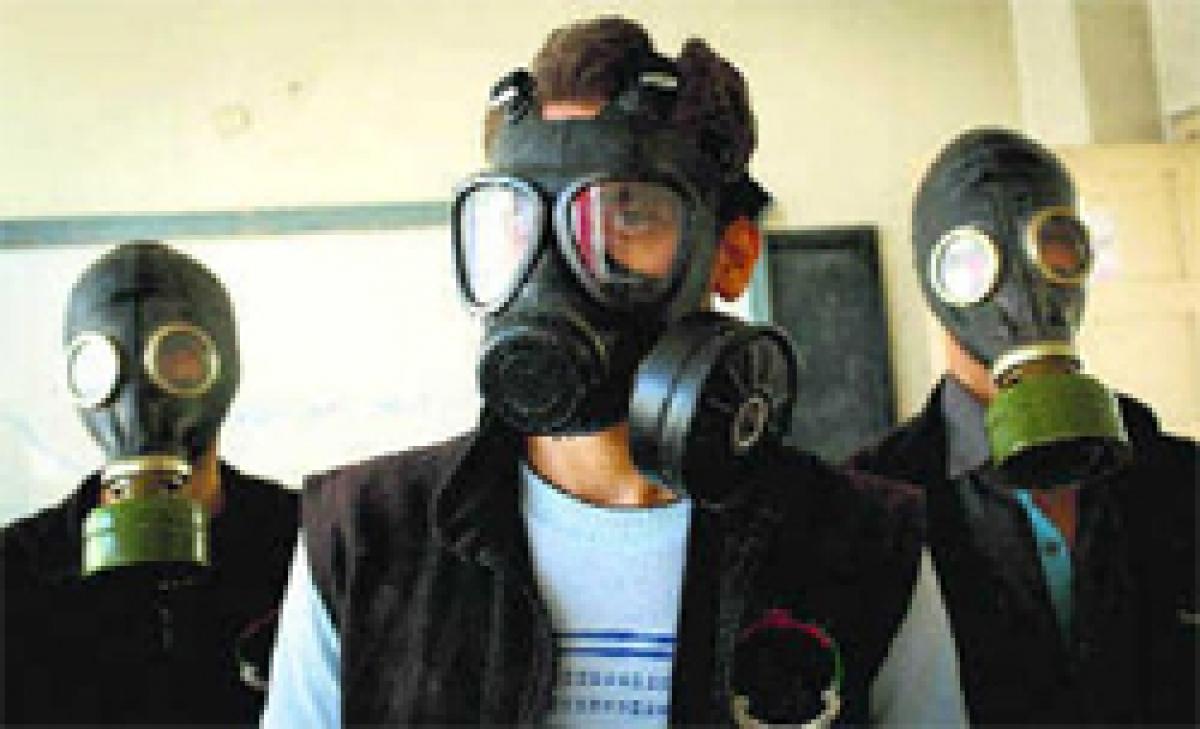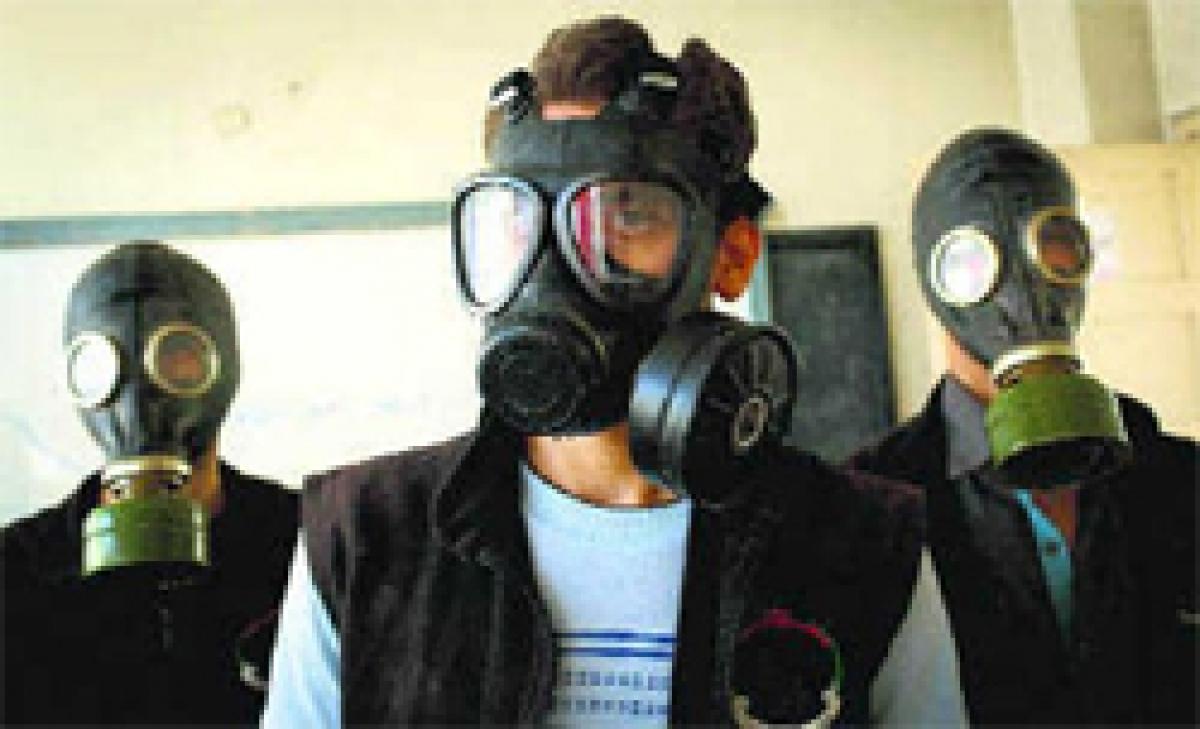Live
- We've to harness our bench strength and the core group of shooters, says NRAI chief Kalikesh Singh
- Apple Updates Vintage and Obsolete Product List: iPhone XS Max, 6s Plus Now Included
- Rudra FC finish MFC Women's Elite Division as runners up, take big step closer to IWL 2
- Rafael Nadal gets emotional tribute from Roger Federer
- Big Data in Action: Transforming Financial Institutions Worldwide with Advanced Analytics
- Karan Arjun Re-release: Director Rakesh Roshan Reflects on 30 Years of the Classic
- Secunderabad Cantonment MLA Pays Tribute to Indira Gandhi on Her Birth Anniversary
- SpaceX Starship Launch: Sixth Test Flight Scheduled for November 20
- Top Women Entrepreneurs: Driving Innovation And Growth
- EU FMs discuss Ukraine, no common position on lifting weapons restrictions
Just In

x
Highlights
Chemical weapons experts have determined that mustard gas was used in a Syrian town where Islamic State insurgents were battling another group, according to a report by an international watchdog seen by Reuters.
Chemical weapons experts have determined that mustard gas was used in a Syrian town where Islamic State insurgents were battling another group, according to a report by an international watchdog seen by Reuters.

A confidential Oct. 29 report by the Organisation for the Prohibition of Chemical Weapons (OPCW), a summary of which was shown to Reuters, concluded "with the utmost confidence that at least two people were exposed to sulphur mustard" in the town of Marea, north of Aleppo, on Aug. 21.
"It is very likely that the effects of sulphur mustard resulted in the death of a baby," it said.
The findings provide the first official confirmation of use of sulphur mustard, commonly known as mustard gas, in Syria since it agreed to destroy its chemical weapons stockpile, which included sulphur mustard.
The report did not mention Islamic State, as the fact-finding mission was not mandated to assign blame, but diplomatic sources said the chemical had been used in the clashes between Islamic State and another rebel group taking place in the town at the time.
"It raises the major question of where the sulphur mustard came from," one source said. "Either they gained the ability to make it themselves, or it may have come from an undeclared stockpile overtaken by ISIS. Both are worrying options."
Syria is supposed to have completely surrendered the toxic chemicals 18 months ago. Their use violates UN Security Council resolutions and the 1997 Chemical Weapons Convention.
The report, which will be formally presented to UN Secretary General Ban Ki-moon later this month, adds to a growing body of evidence that the Islamic State group has obtained, and is using, chemical weapons in both Iraq and Syria.
Kurdish authorities said earlier this month that Islamic State fighters fired mortar rounds containing mustard agent at Kurdish peshmerga fighters in northern Iraq during clashes in August. They said blood samples taken from around 35 fighters who were exposed in the attack southwest of the regional capital of Erbil showed "signatures" of mustard gas.
Special Session
A team of OPCW experts has been sent to Iraq to confirm the findings and is expected to obtain its own samples later this month, one diplomat said.
A special session has been called by the OPCW's 41-member Executive Council to discuss the Syrian findings and it will be held in The Hague on Nov. 23, sources at the OPCW told Reuters.
Sulphur mustard which causes severe delayed burns to the eyes, skin and lungs is a so-called Schedule 1 chemical agent, meaning it has few uses outside warfare.
A second report by the OPCW fact-finding mission to Syria said the team had so far been unable to substantiate claims from the Syrian government that its forces had been targeted by insurgents using chemical weapons.
The mission "cannot confidently determine whether or not a chemical was used as a weapon" by terrorists in the Jober area on Aug. 29, 2014, it said.
Syria agreed in September 2013 to destroy its entire chemical weapons programme under a deal negotiated with the United States and Russia after hundreds of people were killed in a sarin gas attack in the outskirts of the capital, Damascus.
The last of 1,300 tonnes of chemical weapons declared to the OPCW was handed over in June, 2014, but several Western governments have expressed doubt that the government of President Bashar al-Assad declared its entire arsenal.
With Syria's civil war in its fifth year, chlorine has also been used illegally in systematic attacks against civilians, the OPCW found.
In the Idlib province south of Aleppo, the report said, there were several incidents between March and May of 2015 which "likely involved the use of one or more toxic chemicals".
A UN-OPCW joint investigative mission has been assigned to determine who was behind those attacks.

Next Story
More Stories
ADVERTISEMENT
© 2024 Hyderabad Media House Limited/The Hans India. All rights reserved. Powered by hocalwire.com







